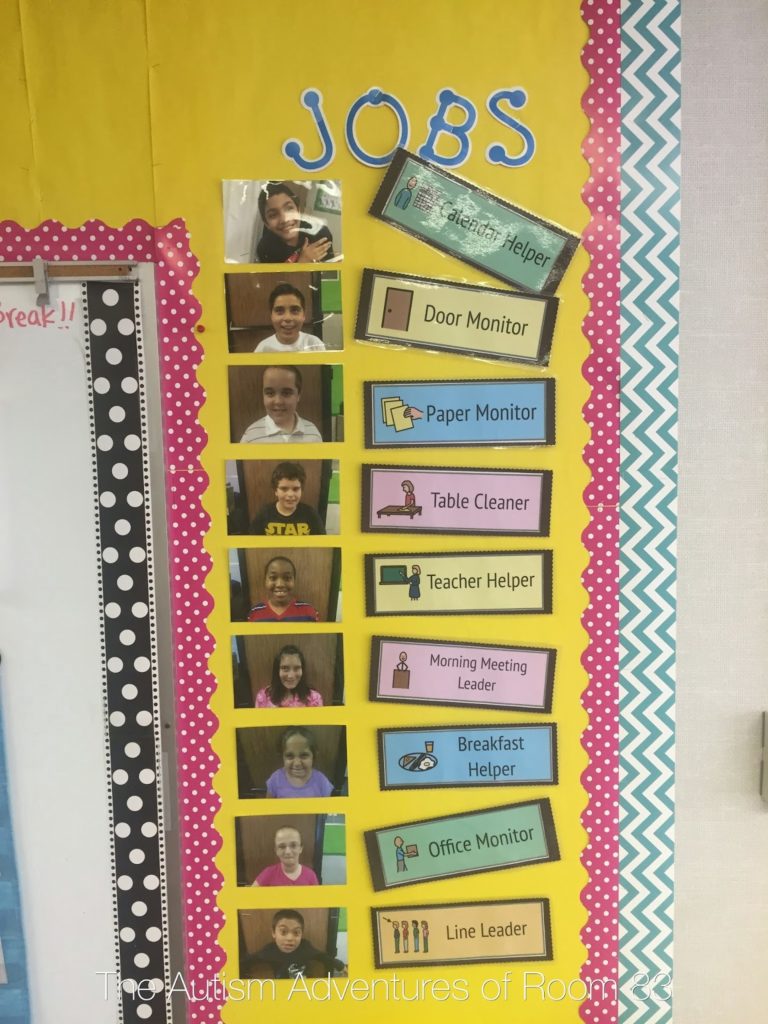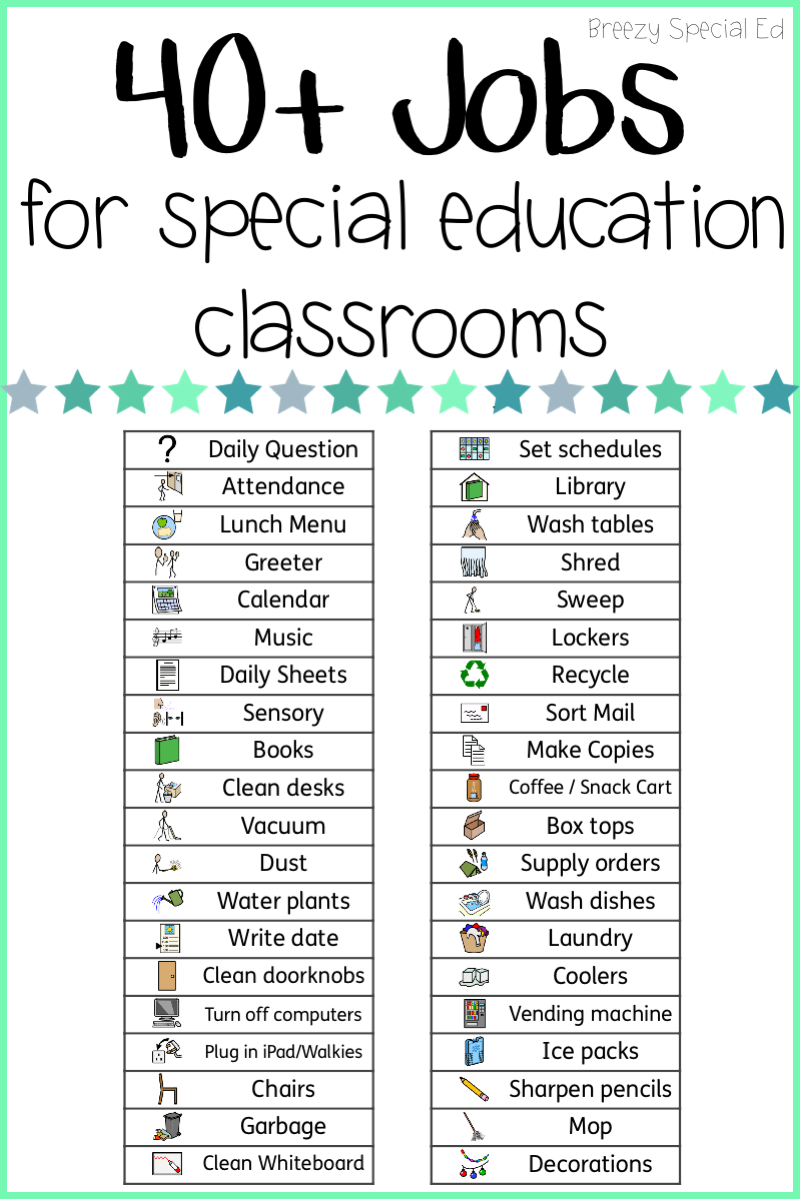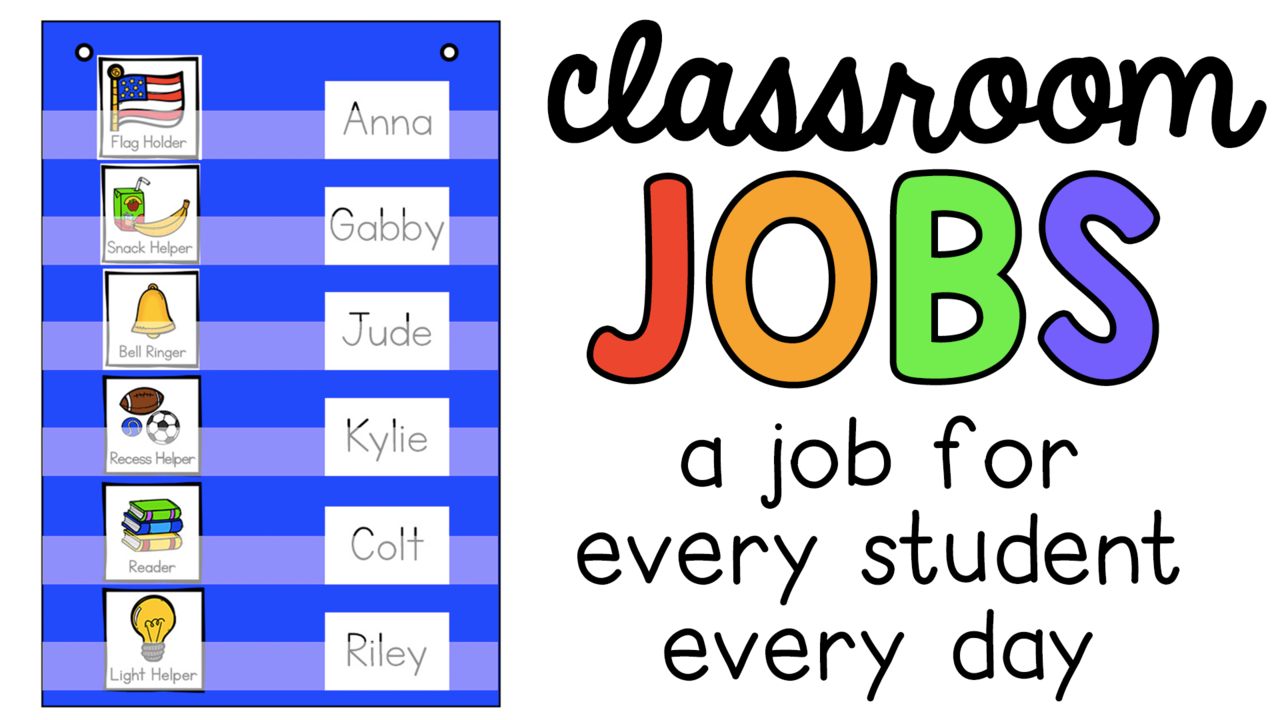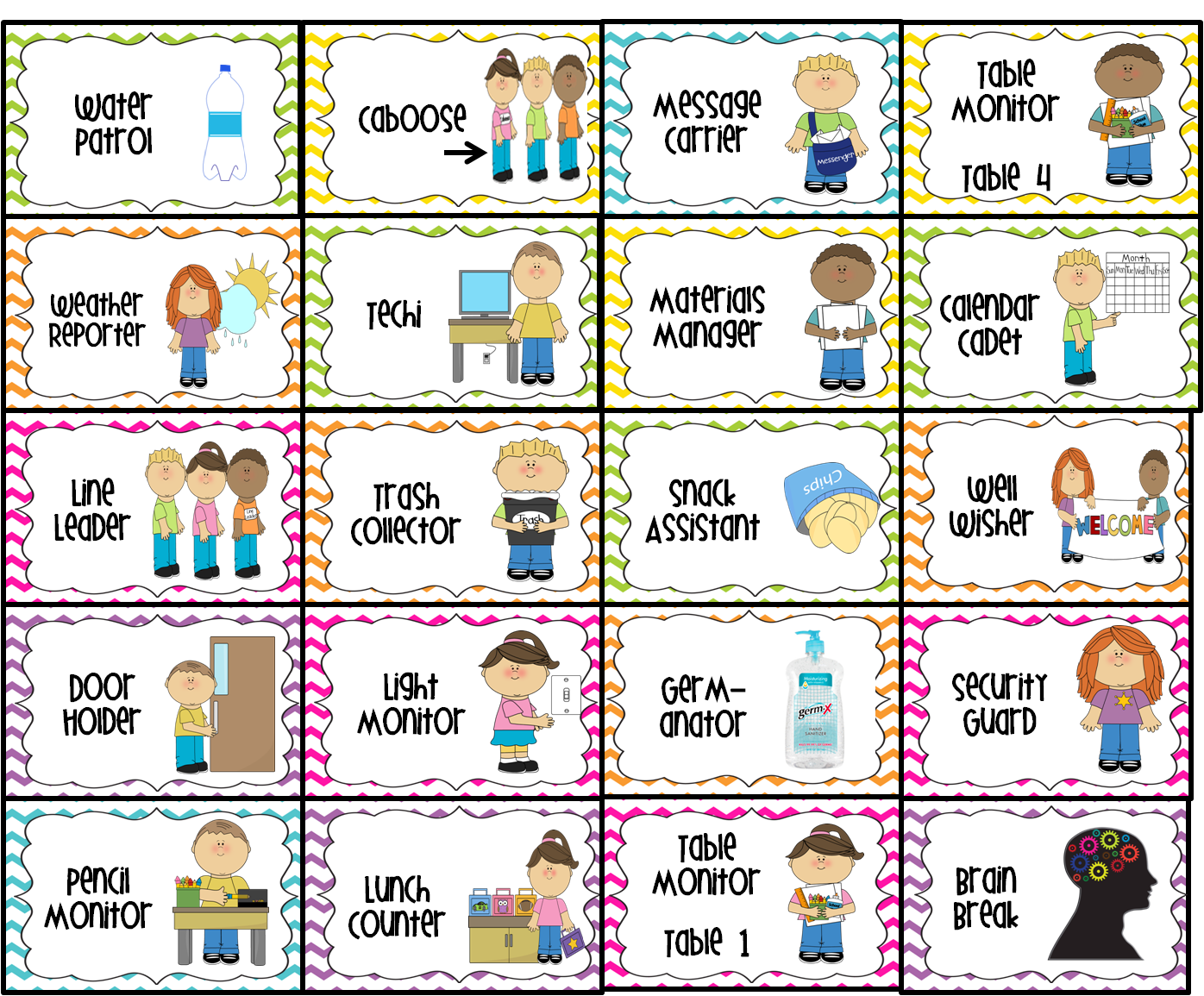
Special education classrooms are diverse learning environments that cater to the unique needs of students with disabilities. In these classrooms, teachers often assign classroom jobs to students to promote independence, responsibility, and a sense of community. Classroom jobs provide students with disabilities the opportunity to contribute to the classroom, develop essential life skills, and feel valued as members of the learning community.
The Importance of Classroom Jobs in Special Education

Classroom jobs play a crucial role in special education classrooms by fostering a positive and inclusive learning environment. These jobs offer students with disabilities a chance to actively participate in classroom management, organization, and daily routines. By assigning classroom jobs, teachers empower students to take ownership of their responsibilities and develop a sense of pride in their contributions.
Furthermore, classroom jobs help students with disabilities develop important life skills that can enhance their independence and self-esteem. These jobs teach students about time management, following instructions, problem-solving, and working collaboratively with peers. The skills learned through classroom jobs can have a long-lasting impact on students' academic and personal lives.
Types of Classroom Jobs for Students with Disabilities

There are various types of classroom jobs that can be assigned to students with disabilities. The choice of jobs depends on the needs and abilities of the students, as well as the specific classroom dynamics. Here are some examples of common classroom jobs in special education:
1. Line Leader:

The line leader is responsible for leading the class during transitions, such as moving from one classroom to another or lining up for recess. This job helps students develop leadership skills and encourages them to follow directions.
2. Door Holder:

The door holder assists classmates with disabilities by holding the door open during transitions. This job promotes empathy, social skills, and kindness towards others.
3. Supply Manager:
The supply manager ensures that classroom supplies, such as pencils, erasers, and art materials, are organized and readily available for students. This job teaches organizational skills and encourages responsibility.
4. Calendar Helper:

The calendar helper assists the teacher in updating and maintaining the classroom calendar. This job helps students develop time management skills and understand the concept of days, months, and seasons.
5. Lunch Helper:

The lunch helper assists in setting up and cleaning the lunch area, distributing utensils, and ensuring a smooth lunchtime routine. This job promotes independence, social skills, and responsibility.
Implementing Classroom Jobs in Special Education

When implementing classroom jobs in special education, it is important to consider the individual needs and abilities of each student. Here are some strategies for successfully implementing classroom jobs:
1. Individualized Job Assignments:

Assign jobs based on students' abilities, interests, and goals. Consider their strengths and areas for growth to create a meaningful and inclusive job assignment for each student.
2. Visual Supports:

Use visual supports, such as job charts or picture schedules, to provide clear instructions and expectations for each job. Visual supports can enhance understanding and independence for students with disabilities.
3. Rotating Job Assignments:

Rotate job assignments regularly to provide students with a variety of experiences and prevent boredom. This allows students to develop new skills and promotes a sense of fairness within the classroom.
4. Reinforcement and Recognition:

Provide positive reinforcement and recognition for students' efforts in performing their assigned jobs. This can be done through verbal praise, certificates, or small rewards, fostering motivation and self-esteem.
Conclusion
Classroom jobs in special education have numerous benefits for students with disabilities. These jobs promote independence, responsibility, and a sense of belonging in the classroom community. By assigning jobs that are tailored to students' abilities and goals, teachers can help students develop essential life skills and enhance their overall learning experience. Classroom jobs empower students to take an active role in their education and contribute meaningfully to their learning environment.